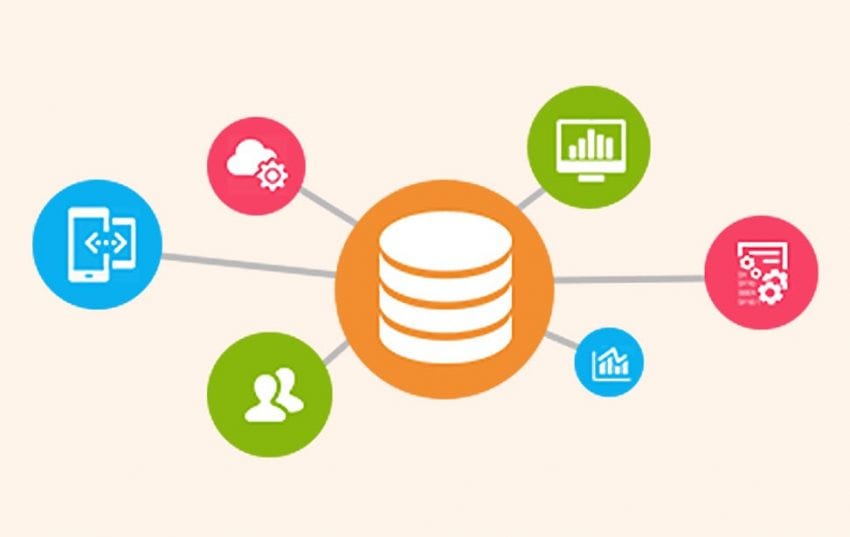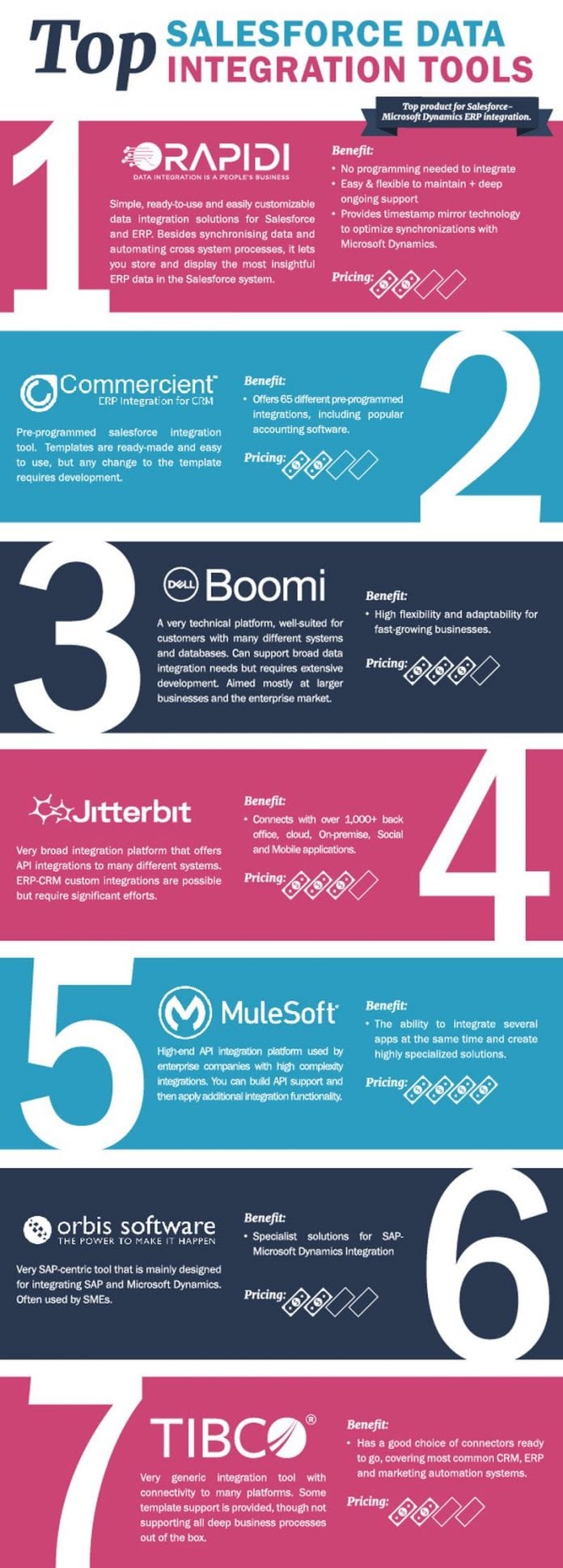Data integration is a vital efficiency tool, especially for ambitious businesses looking to scale up.
Why?
Because if your data isn’t integrated, you’re not able to maximize its value. Data is the powerhouse of 21st-century businesses, but only if it’s used in context. Data on its own is just numbers.
Integrated data gives you a 360° view of your business and your customers and is the basis of informed decision-making. And informed decision-making is the basis of sustainable business growth.
What is data integration?

Data integration means combining data that you’ve gathered from more than one source and making it accessible in a single place.
For many businesses, it means combining their CRM system with another system, particularly an ERP. According to TWM, this is one of the most common and valuable data integrations because it allows you to see all the data you need about your customers, from initial inquiry to repeat order. If that’s something you’re interested in doing, take a look at this infographic, which gives a useful rundown of several different data integration services.
Ways in which data integration leads to efficiency
Being able to access all the information you need without spending lots of time looking for it is naturally more efficient than having that data spread across different pieces of software. But there are some specific ways in which it can really streamline the way you work.

Less time spent on admin
If your data isn’t integrated, you’re probably spending lots of time copying data manually between sources. Even if you’re not doing that, you’re wasting time on phone calls and emails to other people in your business to find out the information you need.
Data integration completely removes the need for any of that. Everything you need to know about your business, customers and staff is right there when you need it, within a click or two.
Less time spent correcting mistakes
Manual data sharing means mistakes. It’s inevitable that someone copying data into a spreadsheet, or answering a question on the phone will sometimes make a mistake. It is impossible to eliminate human error. Data integration syncs all your data automatically, so it’s always accurate.

Less time and money needed for training
If your data isn’t integrated, you’re likely to have at least some people in your business who need to learn how to use more than one system. That means more money spent on training and time that could be used to generate business being used to learn systems.
Integrated your data and people will be able to see all the data they need in one system, without having to learn another one.
The ability to make accurate forecasts
We know that you can’t make good decisions without good data. While you probably can have good data without data integration, integration makes it far easier and quicker to gather the data you need.
Using data well is vital to business success. Automate where you can and you’ll get the most out of your data, both now and as you grow.










